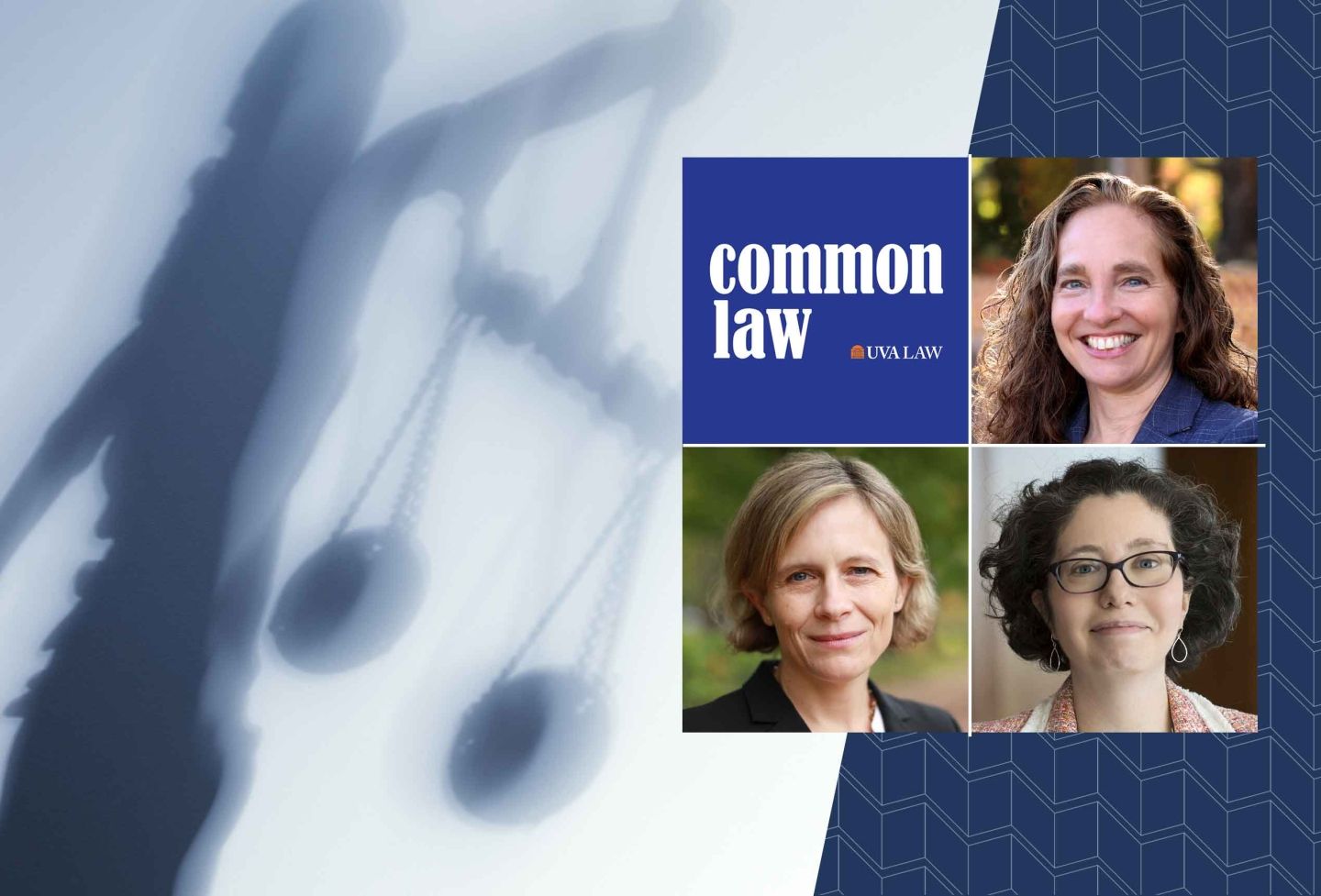A group of University of Virginia School of Law alums was in the driver’s seat of last month’s lawsuit that won a preliminary injunction stopping the state’s policy of suspending licenses for unpaid court fines and fees without a hearing — a practice that has affected nearly a million residents.
For now, the ruling only applies to the five named plaintiffs, but a class certification motion is pending.
U.S. District Judge Norman K. Moon ’62 ruled Dec. 21 in favor of the plaintiffs in Stinnie v. Holcomb. The Legal Aid Justice Center and the law firm McGuireWoods, along with David P. Baugh, a well-known Virginia criminal trial attorney, brought the constitutional complaint on behalf of the five plaintiffs.
LAJC Executive Director Angela Ciolfi ’03 called the ruling “a victory for the Constitution and for common sense” in a statement following the decision. She and McGuireWoods partner Jonathan Blank ’95 argued for the plaintiffs at the Nov. 15 preliminary injunction hearing.
In his ruling, Moon questioned the constitutional validity of the state law, which uses driver’s licenses as leverage to recoup fees, while emphasizing the harm caused by its enforcement.
Without licenses, those affected may have trouble holding down jobs, which can in turn help pay off court debts, as well as taking care of other basic needs such as getting to medical appointments. Lead plaintiff Damian Stinnie is a Charlottesville resident in his 20s who suffers from lymphoma.
The law, Moon noted, has been enforced without the due process of hearings.
“While the Court recognizes the Commonwealth’s interest in ensuring the collection of court fines and costs, these interests are not furthered by a license suspension scheme that neither considers an individual’s ability to pay nor provides him with an opportunity to be heard on the matter,” Moon wrote in his decision.
In the injunction, Moon enjoined Richard D. Holcomb, in his capacity as commissioner of the Virginia Department of Motor Vehicles, from enforcing future suspension of plaintiffs’ licenses unless a hearing is conducted with due notice. Moon also ordered the removal of three plaintiffs’ current suspensions and prevented the suspension of the other two plaintiffs’ licenses while forbidding any fees to reinstate their licenses.
The decisions could add to the push for state reform. Virginia Sen. Bill Stanley’s bill (SB1013) to repeal license suspension for unpaid court debt has garnered broad bipartisan support, and Gov. Ralph Northam announced earlier in December that his administration will strengthen the chances of repeal by proposing in his budget to replace the revenue generated by DMV reinstatement fees.
“Driver’s license suspension for people too poor to pay is unconstitutional, unfair and now unenforceable — at least with respect to the named plaintiffs,” Ciolfi said. “It’s time to end this pernicious and counterproductive regime once and for all.”
Pat Levy-Lavelle ’05 of LAJC, along with McGuireWoods attorneys Ben Abel, Alyssa Pazandak, Laura Lange, Tennille Checkovich, and Travis Gun, helped Ciolfi and Blank with briefing and prepared witnesses for the court during the exhaustive preliminary injunction hearing.
“The preliminary injunction hearing was a full almost six-hour evidentiary hearing,” Ciolfi said. “We put on two live experts on economics and poverty, and submitted several declarations from transportation experts. One of our clients also testified powerfully about how the suspension devastated her life, as did two court clerks.”
UVA Law Vice Dean Leslie Kendrick ’06, Professor Emeritus Laurens Walker and numerous UVA Law students over the years have contributed to the “Drive Down the Debt” effort as well. Tom Beshere, a 1997 UVA graduate, and law grads Myra Chapman ’11 and Lena Busscher ’11 are among the McGuireWoods attorneys who previously worked on the case.
The case was originally dismissed at the District Court level for procedural reasons. The Fourth Circuit allowed plaintiffs to amend their complaint during the summer, and the plaintiffs added a motion for class certification and a request for the court to issue a preliminary injunction.
Founded in 1819, the University of Virginia School of Law is the second-oldest continuously operating law school in the nation. Consistently ranked among the top law schools, Virginia is a world-renowned training ground for distinguished lawyers and public servants, instilling in them a commitment to leadership, integrity and community service.


